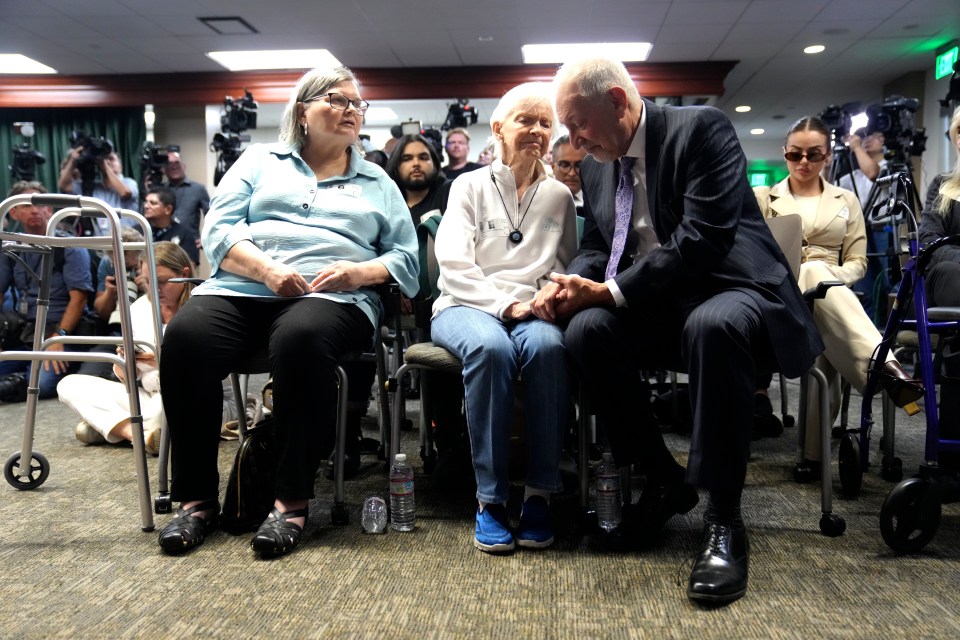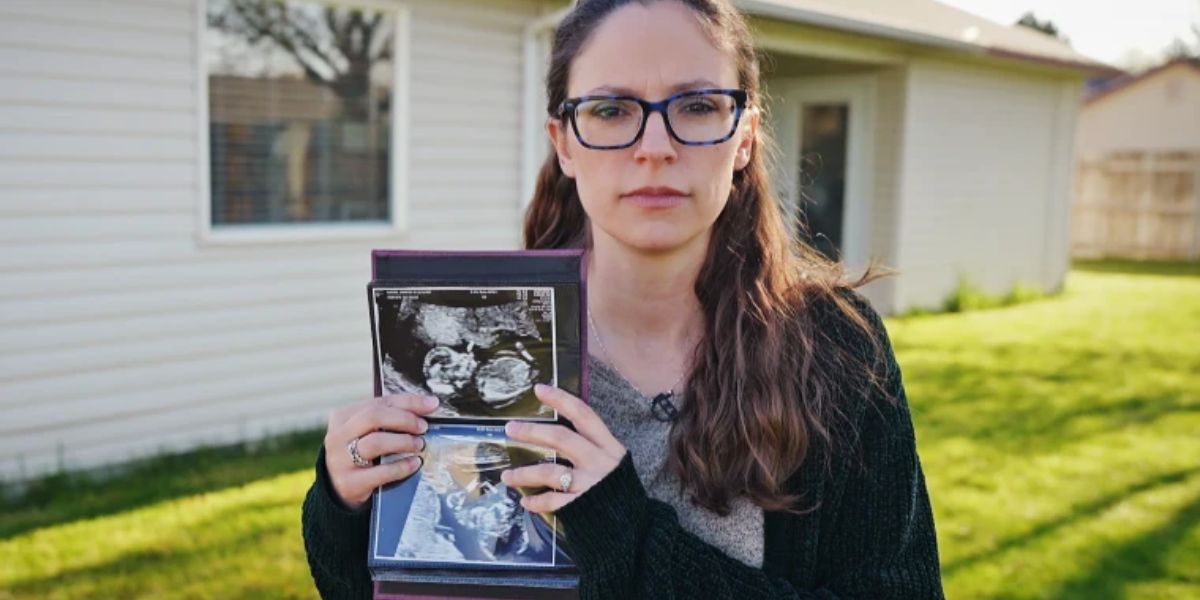A Mother’s Abortion Narrative From Idaho Captivates as Supreme Court Considers Ban
BOISE, ID — Every pregnant woman fears learning the news. Jennifer Adkins found out her growing fetus had Turner syndrome, a rare genetic disorder, and was unlikely to live when she was twelve weeks pregnant with her second child. Doctors further cautioned that her health might be at risk.
Adkins was at high risk of what’s called Mirror Syndrome, a disorder in which the expectant woman experiences edema, high blood pressure, and maybe preeclampsia, all of which are signs of her failing fetus.
But Adkins discovered the fetus still had a heartbeat when she brought up the possibility of ending the pregnancy with her doctors. “Considering the severity of what we’re seeing on ultrasound, they said we’re shocked you’re still pregnant. By now most women would have miscarried, she added. I was just in utter disbelief.
Of the more than a dozen states that have outlawed almost all abortions is Idaho. Any abortionist who does one here faces a maximum five-year jail sentence and medical practitioners who break the legislation risk losing their licenses.
If a doctor determines the operation is required to save the woman’s life, the law offers an exception. Nonetheless, Idahoan physicians report that there is a great deal of misunderstanding over what to do when a patient is carrying a nonviable pregnancy that may have disastrous consequences but is not in danger of dying.
Just five full-time physicians who specialize in maternal-fetal medicine remain in Idaho. “It makes no sense that we’re just going to wait until you’re on death’s door and then we’ll act,” said Dr. Duncan Harmon.
A lawsuit the U.S. Supreme Court must now decide on centers on the dilemma that some Idaho doctors find themselves in. The judges heard oral arguments on Wednesday and will determine if the state’s abortion ban violates a federal regulation requiring hospitals receiving federal financing to offer patients whatever required care, including abortions, to stabilize them in an emergency.
Several of the liberal justices brought up instances in their queries about medical issues that, while not always fatal, could result in significant bodily harm if not treated right away. One such issue was premature membrane rupture. Not only that, but Adkins and three other women and two physicians have sued Idaho in state court to enumerate the extent of the state’s abortion prohibition. Late this year is tentative when the trial is scheduled.
Weeks could have passed while Adkins waited for a natural miscarriage. She therefore packed her suitcases, scraped together the money, and drove six hours to Oregon to get an abortion.
The way our state was treated repulsed both of us, she continued. “Travelling to have the operation added to the emotional trauma we already experienced from losing a much-desired child.” Reacting to Adkins’ complaint on Wednesday, Republican Idaho Attorney General Raúl Labrador declared that the law is “very clear.”
“Instances when the life of the mother is in danger, [abortion] will be permitted by the state of Idaho,” he stated. “The law in Idaho protects unborn children and protects the life of the mother.”
Senior staff attorney Gail Deady of the Center for Reproductive Rights, the legal advocacy organization that represents Adkins, disagreed, stating that she does not believe “most doctors in Idaho know where that border is.
Harmon claimed the method runs counter to medical education.
“The idea of not acting, which might hasten the clinical situation to worsen so that we can act only at the very end is counterintuitive to anything in medicine that I know,” he stated.
According to Boise-area OB-GYN Dr. Sara Thomson, it can be devastating to refuse a pregnant mother the right to terminate a pregnancy if she has a medical issue that indicates the baby would not survive.
“We are adding trauma onto a situation that is already traumatizing, and to feel like our hands are tied by a state legislature who doesn’t understand this clinical detail is super frustrating,” she said. “Having her stay pregnant for hours or days longer until we can declare her medical condition life-threatening, does nothing to benefit the baby and only harms the mother.”
An Idaho Physician Well-Being Action Collaborative study found that the state lost 22% of its 268 OB-GYNs in the 15 months following the implementation of its abortion ban in August 2022.
As a result, Thomson added, “even if you don’t have any complications, you may find yourself in a situation where you are having to drive many miles, more than an hour, to have a prenatal visit or to deliver your baby.”
Thomson said that she too had just updated her resume, for the first time in ten years. Harmon, though, declared that he intends to stay—at least for the time being.
“Those of us who are left are sort of thinking… We must continue because, should we not, who will? That was what he said.
Adkins is expecting a child in a state she believes has already let her down once.
It is frightening, and it is getting scarier, she added. It feels like walking on eggshells just knowing the situation of maternal care in our state at the moment.











